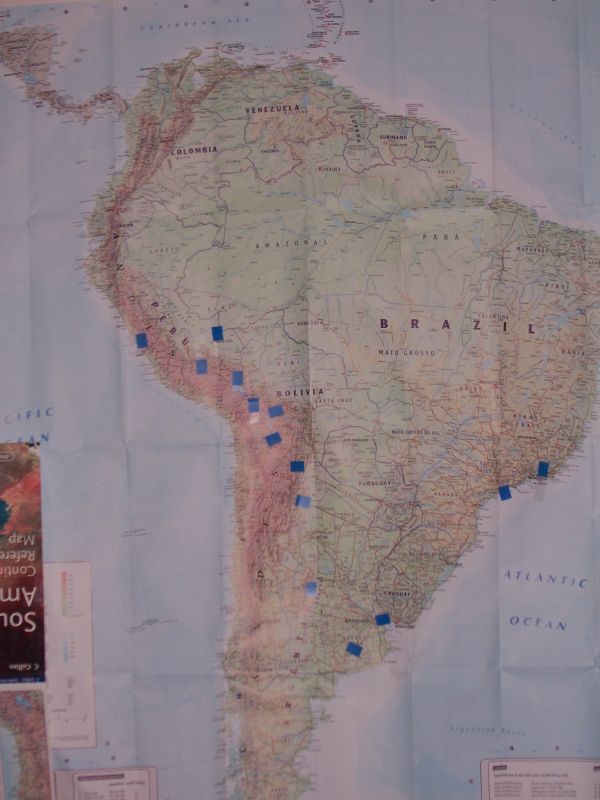The skirl of the samba
Well, not quite. Brazil's only bagpipe band sticks mainly to Scottish classics but it also features local tunes
ANGUS MACSWAN
Reuters
September 27, 2007 at 4:50 AM EDT
SAO PAULO, BRAZIL — On a sunny Sunday morning, when many Brazilians are heading to the beach, the martial skirl of bagpipes evoking the chilly Scottish Highlands pierces the air of a Sao Paulo neighbourhood.
"Let's start with The Earl of Mansefield," pipe major Cristiano Bicudo tells the group assembled in a community hall.
It's practice time for the Scottish Link Pipe Band, the only bagpipe band in the land of samba and bossa nova.
Although dressed in typical Brazilian style of shorts and T-shirts for this session, the band dons full Highland regalia for public appearances. Its kilts feature the Red Cunningham tartan, which shares the red, white and black colours of Sao Paulo state. All but four of the band's 21 members are Brazilian.
In a country with such a rich musical heritage of its own, why had they turned to the often maligned bagpipes of a small and distant land?
For Fred Fomm, it was seeing the pipe band of the old British Caledonian Airways playing at the opening of a Sao Paulo shopping mall when he was 5. "I fell in love with the sound. I thought Jesus, that's what I want to play," the 31-year-old doctor said.
Cesar Greco, a long-haired photojournalist who looks like a rock guitarist, was inspired after seeing the Mel Gibson movie Braveheart about Scottish hero William Wallace.
Or perhaps, opined drum major Colin Pritchard, a retired Scottish banker, "They think they'll get free whisky."
The band was founded by Mr. Bicudo, who bought a bagpipe record by chance when he was a boy. "I was so inspired I wanted to learn the pipes," the 38-year-old lawyer and financier said.
Scottish piper John Martin, who visited Brazil, became a mentor. As a teenager, Mr. Bicudo studied at Glasgow's College of Piping. He then sought out potential pipers in Brazil and the band came together in 1995. He taught them all.
"The sound of the pipes is fantastic. They take you back to the past. It's very uplifting. It makes you want to go to battle," he said.
But above all, it's a social thing. "It's for dancing, for partying in the street. If you lived in the Highlands, it was an isolated life. You wanted to party, to drink, to dance with friends when you could. Brazilians are looking for the same things, that's what makes the connection. We all like to have a good time."
The band plays at balls and corporate and charity functions.
In August, they were in Glasgow for the World Pipe Band Championships. There they teamed up with Sambayabamba, a samba drum group made up entirely of Glaswegians, to play at Kelburn Castle.
The band has a full repertoire of marches and reels, but its show-stopper is its Brazilian set - two classic songs in the forro style from northeast Brazil written by Luiz Gonzaga: Asa Branca and Baiao de Dois. It works well, perhaps because Asa Branca is the story of a migrant who misses his homeland, a universal theme.
Mr. Fomm, who has a thistle tattooed on his left arm, overcame the objections of his jazz musician father to learn the pipes instead of the guitar.
But despite the passion for the pipes, there are some differences in style that are hard to overcome.
"One of the problems is to get Brazilians to play in a punchy way. They play more round and loose," Mr. Fomm said. "The biggest struggle is to get them to march."
Subscribe to:
Post Comments (Atom)

No comments:
Post a Comment